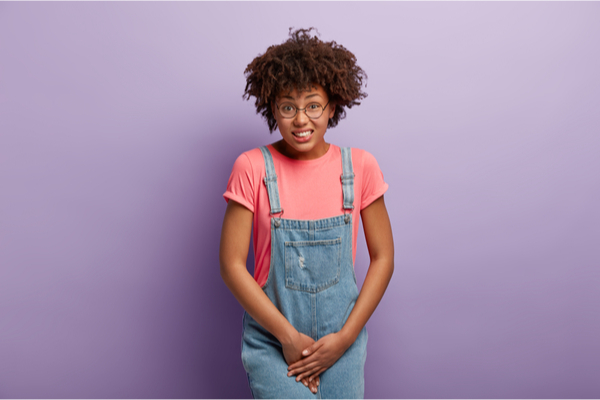“It’s a real phenomenon,” Sandip Vasavada, MD, a urologist at Cleveland Clinic, said in an interview with Health magazine, speaking of that “need-to-go” feeling as soon as you get home. That’s because the different behaviors we do en route can trigger the feeling—like opening the door to your house. According to Dr. Vasavada, some of his patients say that when they hit the remote to open their garage door, they feel an urgent need to pee, almost as if the remote turns on their bladder, as well.
The phenomenon is so common that some even refer to it as “latchkey incontinence”—one 2015 study published in the journal Biomedical Research, used the phrase to describe “the loss of urine that occurs when one arrives home and puts the key in the lock of one’s front door.” The general medical community, however, doesn’t necessarily use that terminology, says Sovrin M Shah, MD, a urologist at Mount Sinai.
Regardless of what you (or your doctor) calls it, the cause of this sensation is pretty straightforward: It’s a sign you have overactive bladder syndrome (OAB), says Dr. Vasavada. According to a survey conducted about 15 years ago, he adds, about 33 million people in the United States have an overactive bladder, which is why many people can relate to that “gotta go” feeling that sometimes comes on when you get home.
According to Dr. Vasavada, doctors don’t know exactly why the feeling of getting home triggers the need to pee in individuals with OAB, but the 2015 study suggests it may be a sort of “Pavlovian conditioning.” Per the study authors, “frequent concurrence of immediate urination with arriving home leads to a conditioned response of a strong urge to urinate and actual loss of urine upon arriving home.”
But it’s not just arriving home that can trigger the urge to pee; a few other scenarios can cause people with OAB to feel like they need to pee immediately, like washing your hands or showering in warm water, says Dr. Vasavada. “Some people would say [a] cold weather blast” causes it too, he adds.
Of course, symptoms of OAB extend beyond urgency or incontinence due to certain triggers—other signs of include having to pee often throughout the day, and peeing often during the night. Also, people with overactive bladder sometimes experience what Dr. Vasavada calls “leakage,” or incontinence, which can happen if you can’t make it to the bathroom to pee quickly enough. (However, incontinence in general can also be caused by a variety of other problems, including nerve damage, constipation, and surgery, per the US Department of Health & Human Services.)
Most people view OAB as a side effect of aging, rather than a condition that requires treatment, according to the National Association for Continence (NAFC), but severe cases might interfere with one’s quality of life and, therefore, can justify a treatment plan. Some people use dietary changes, bladder retraining, and fluid management to control their condition, according to the NAFC. It’s especially important to monitor caffeine and alcohol intake when you have overactive bladder, Dr. Shah says. Additionally, a handful of medications can be used to control the nerves of your bladder, and, in extreme cases, doctors might consider surgically enlarging your bladder to manage the condition.
For most of us, though, simply being aware of the fact that it’s pretty normal to get that “have to pee” feeling right when you get home will ease your mind, if not your bladder.
—
Photo Credit: WAYHOME studio / Shutterstock.com
